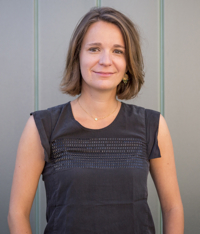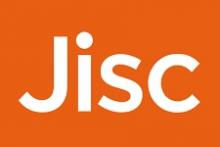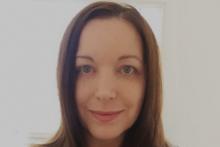Democratising science

Virginie Simon, CEO & co-founder of MyScienceWork, explains her ambition to map, structure, manage and measure impact – and promote research content
Tell us a little about your background and early career?
I trained as an engineer in biotechnology at the Technological University of Compiègne (UTC), France. In parallel, I completed a BA in philosophy from the University of Nanterre, France. I then received her doctorate in nanotechnology for cancer therapy from the University Pierre and Marie Curie (UPMC), Paris.
I had more than three years’ professional experience in a nano-medicine start-up, which confirmed my desire to become an entrepreneur. Founded in 2010, MyScienceWork is an innovative, professional technological platform, offering a Web 3.0 environment aimed at researchers, publishers and institutional. I currently lead a team of 15 people located in Paris, Luxembourg and San Francisco.
Also, I am very involved into the promotion of women as CEOs and women in tech. I have received some great awards related to this work:
- Gold Award – Women Role Model – French American Business Award – San Francisco – May 2017
- Top 5 Women Business Manager of The Year – Luxembourg – April 2017
- Entrepreneur Category – Trophées des Français à l’Etranger – Paris – March 2017
- Top 100 most successful female entrepreneurs in Europe The Hundert – Berlin – May 2016
- Top 30 international startups in which to invest – Challenges magazine – Paris – April 2016
What motivated you to create MyScienceWork?
For my PhD, I decided to join a start-up and focus on the use of nanotechnology to fight cancer. I believe nanotechnology will have a significant impact on people’s health and the way diagnostics are being carried out. Its ultimate goal is to allow the extension of life and the renewal of human organs. It is a multidisciplinary sector that gathers various fields and types of knowledge (biology, robotics, chemistry, physics…).
The creation of MyScienceWork is the result of some observations I made during my doctoral work. I was 28. During my PhD, I realised that science should be more open and that scientists needed tools to help them access research results, accelerate research and better collaborate.
People needed a way to gather on a single platform, to collaborate, share and communicate. The general public is also increasingly seeking scientific information and is eager to learn. Anyone can develop an ability to understand science, its concepts and even become an expert. Science has become more and more open and transparent.
So what is MyScienceWork all about?
MyScienceWork is a global platform for researchers, institutions and publishers.
When a scientific social network is associated with an institutional archive with a perfect usage and access rights for article sharing scholarly communications increases dramatically! The global platform serves the needs of individual researchers eager to access and share research. With a global community of 500,000 researchers, MyScienceWork’s goal is to democratise science and make research more open and discoverable.
Since 2010, the MyScienceWork team has been working with researchers, institutions and publishers to map, structure, manage, measure impact and promote research content. The MyScienceWork platform is based on 70 million scientific publications, and 12 million patents from thousands of institutional repositories and publishers databases. Unlike other scientific social networks that compromise a publisher’s copyright, MyScienceWork concentrates on quality and upholding the publisher’s copyright – as well as the high quality of its scientific content, its management of copyrights and embargo dates.
MyScienceWork considers the management of the database of licenses a priority. The open access articles are highlighted. Simultaneously a very strict plan has been set up to ensure the rights of the paid articles. In direct partnership with the publishers, MyScienceWork guarantees that the rights published on the website are up to date and in compliance with the law. We authorise the researchers to submit new publications as well. In average 300 publications are uploaded onto our platform per month. Not only do we automatically recognise copyright but we also have a final manual validation on a general basis executed by the team at MyScienceWork. The social network aspect is part of MyScienceWork.
The company has established itself by offering multiple products to its institutional clients and publishers. The first product is called PolarisOS. It is an institutional archive solution that is ready to use. MyScienceWork delivers dashboards of metric strategies on quantity, quality, collaboration and the performance of their own content.
The second product is called Sirius. It is composed of big data products such as metadata extraction and enhancement, trend analysis and expert identification. Based on natural language processing and machine learning, MyScienceWork solutions can be applied to all sizes and disciplines of scientific corpora. MyScienceWork’s products help publishers build solutions to analyse and boost their content’s visibility and impact.
What is the biggest issue facing researchers these days?
Researchers are challenged by the lack of time, the sea of data and the importance of finding the most germane article to support their research hypothesis. They are further challenged the by plethora of tools to choose from or what is offered by their institution. The overarching concern that is on the researcher’s mind is the fact that if their grant submission paper is missing a key article it may blow their chance for the grant.
What has been the biggest industry development since MyScienceWork was formed?
Well, we are seeing the beginning of big data analytics. I say the beginning because the current big data analytics are very basic and showing a lot of promise.
Do you have any future predictions for the scholarly communications industry, particularly for researchers?
Yes I do, based on your previous question and my response of big data, I think big data analytics is going to change how scholarly research is conducted, peer reviewed, disseminated, evaluated and curated. Big Data and its analytics will reshape the critical path of and value chain of scholarly publishing.
Interview by Tim Gillett









